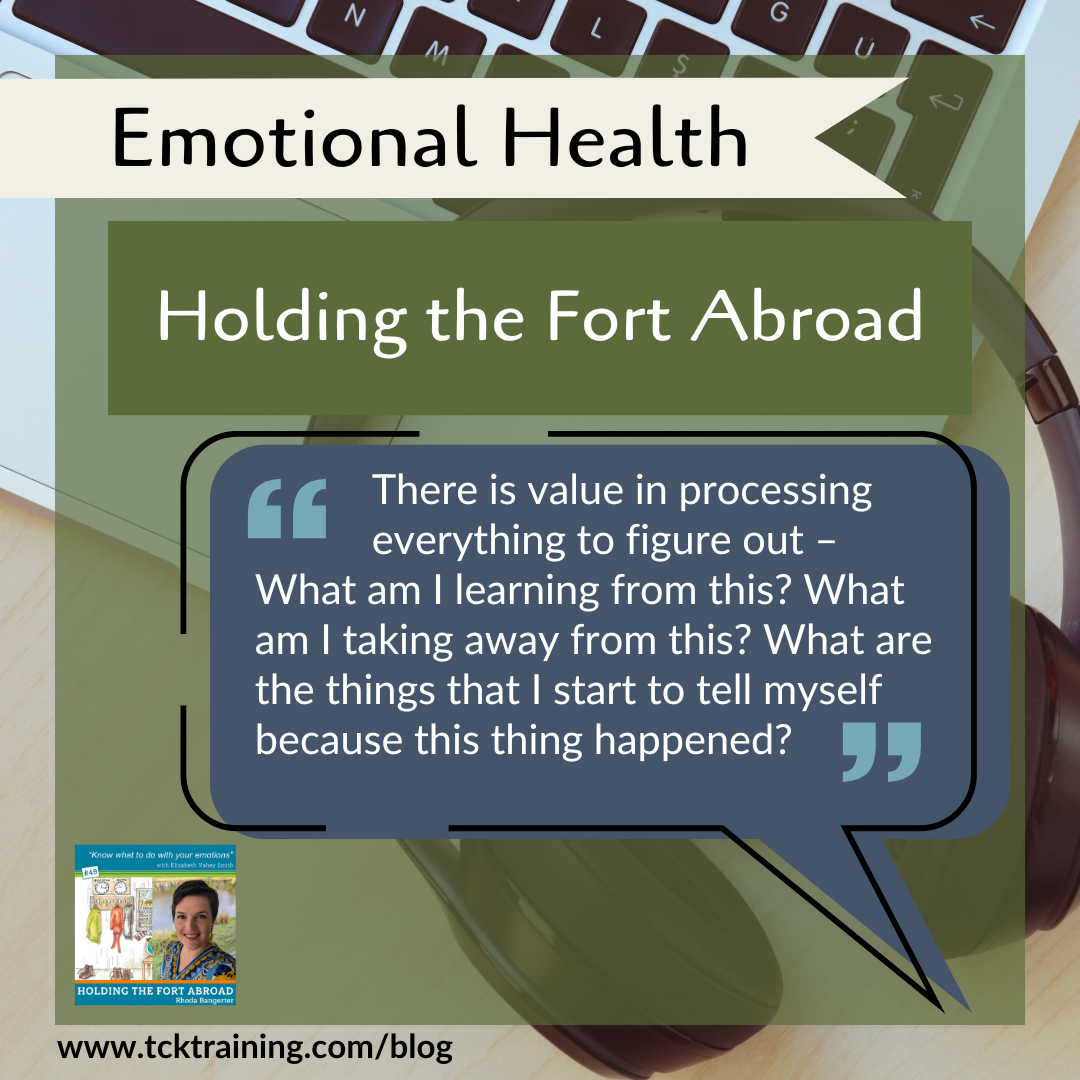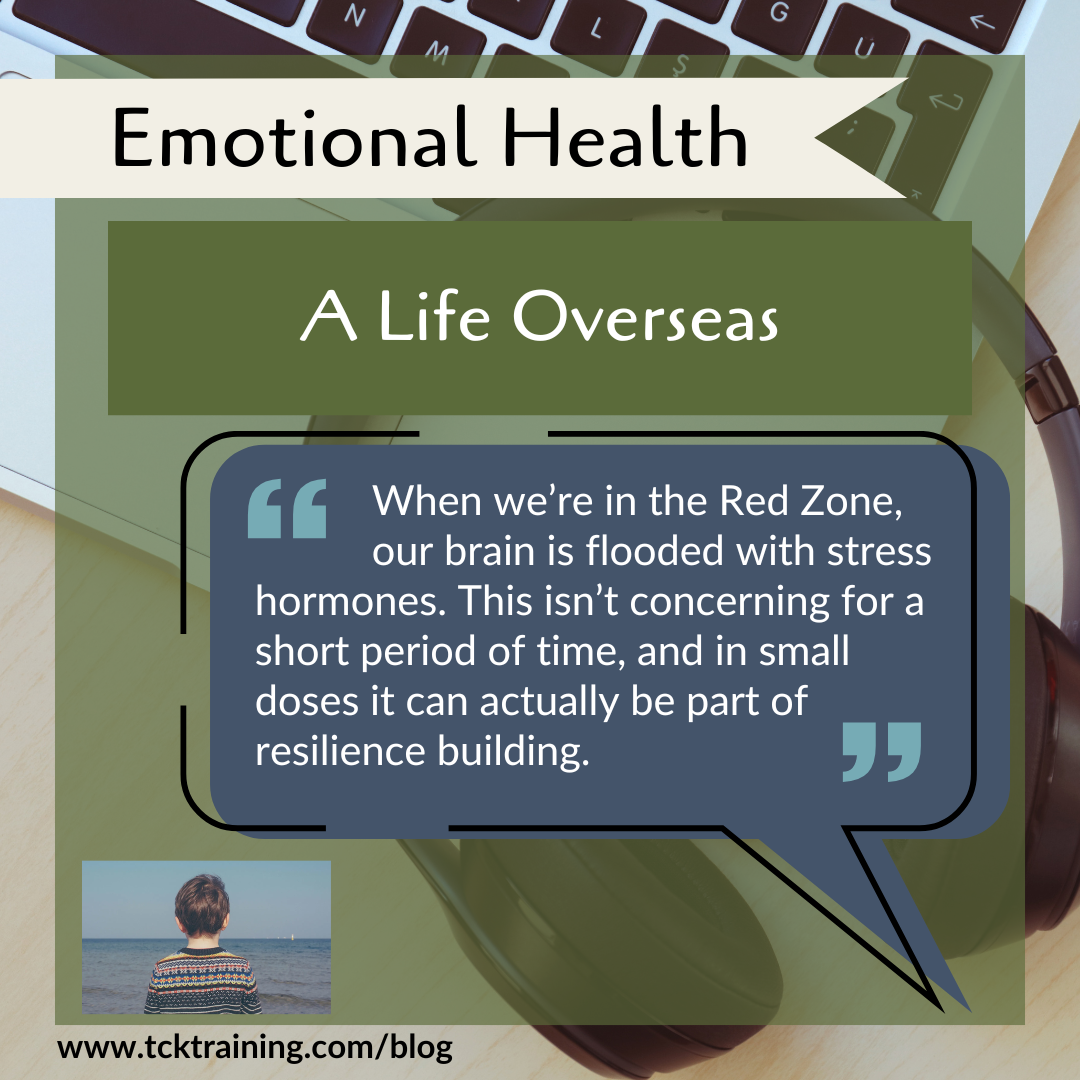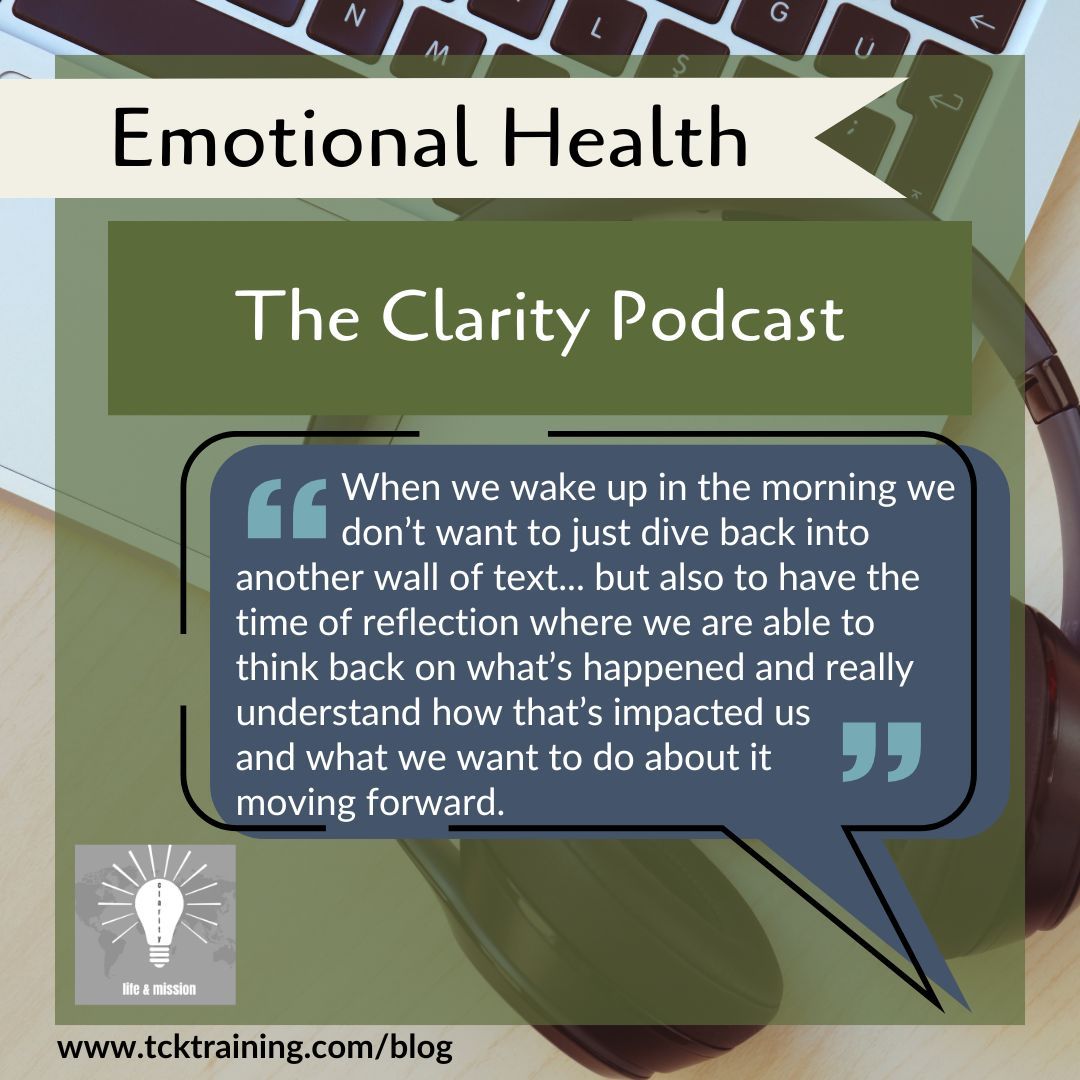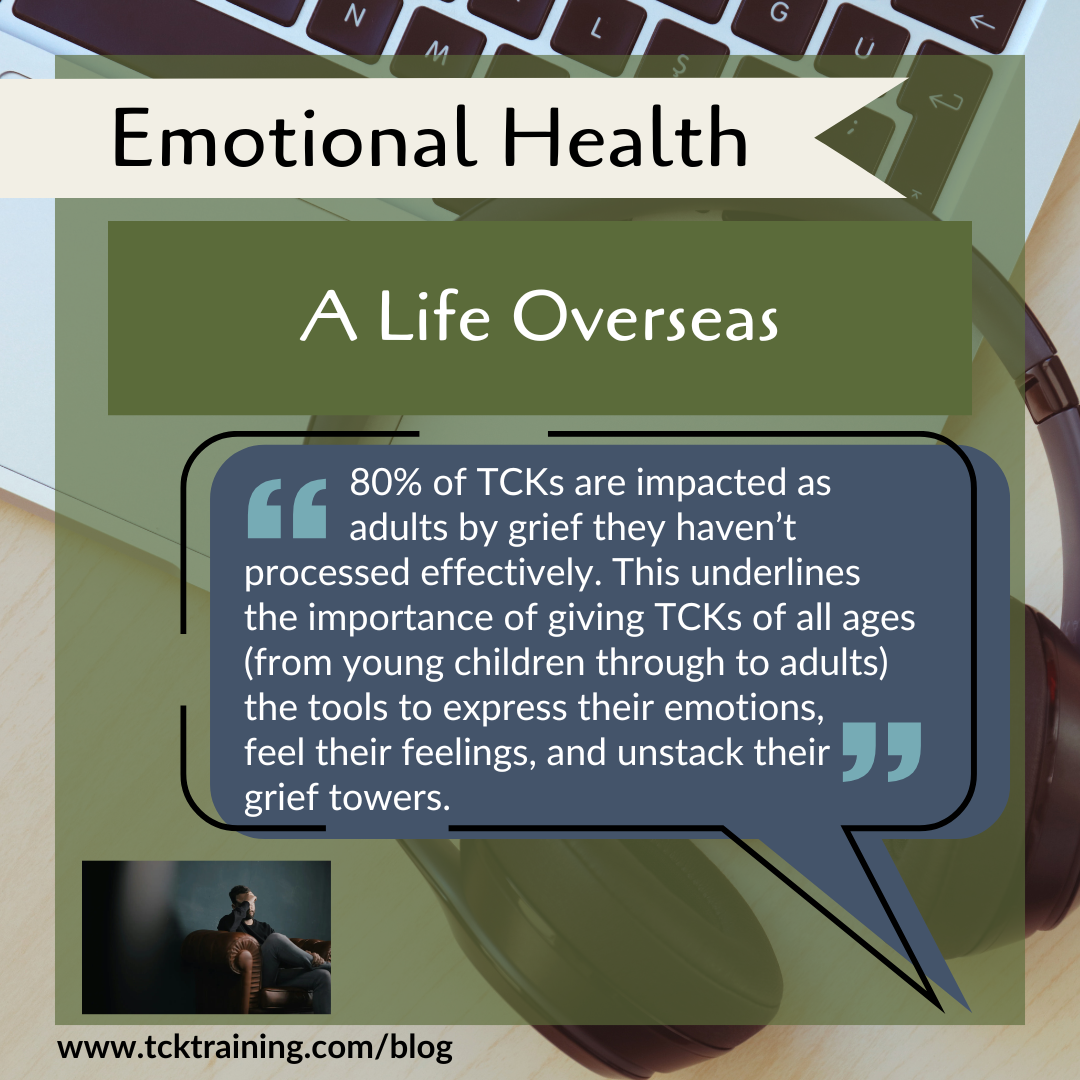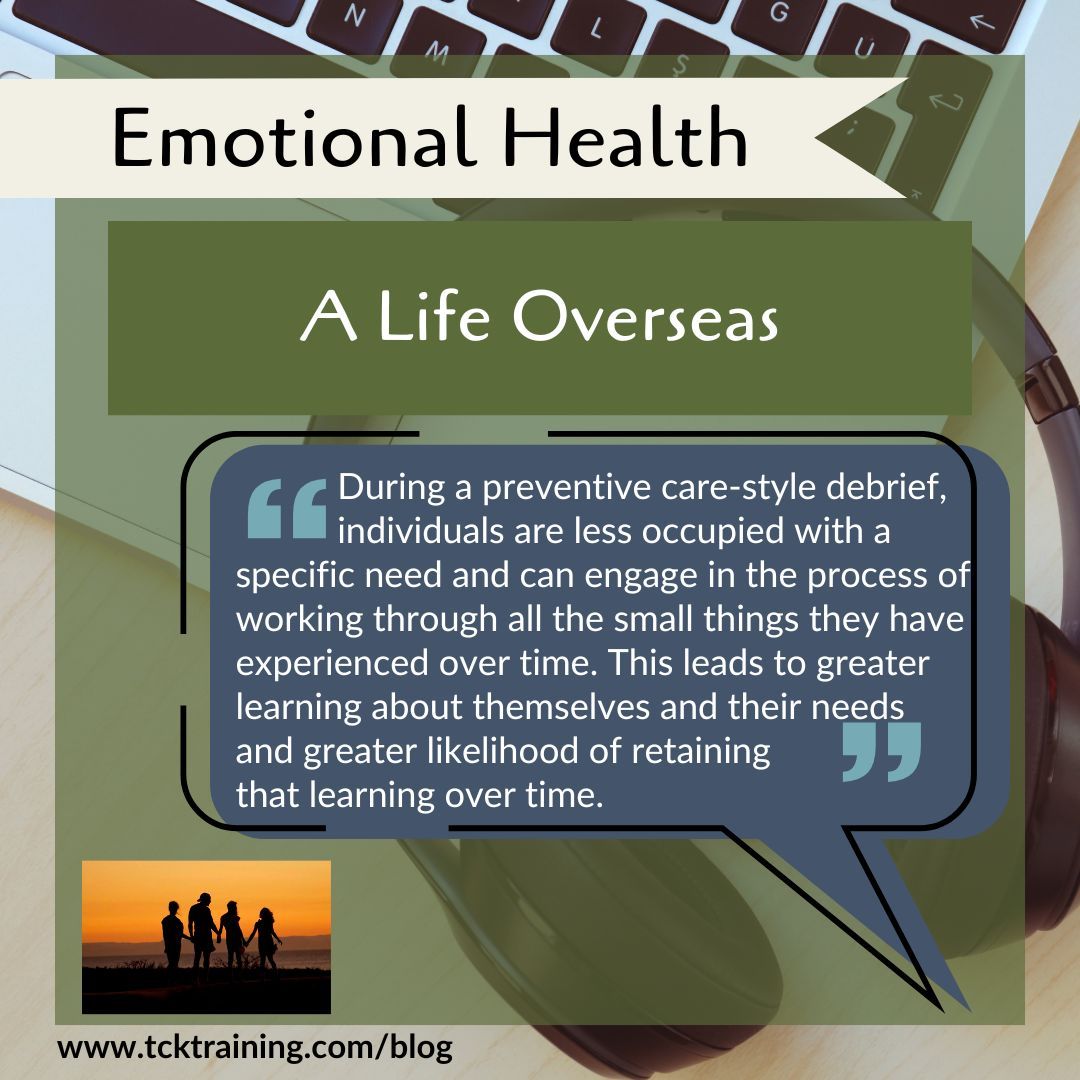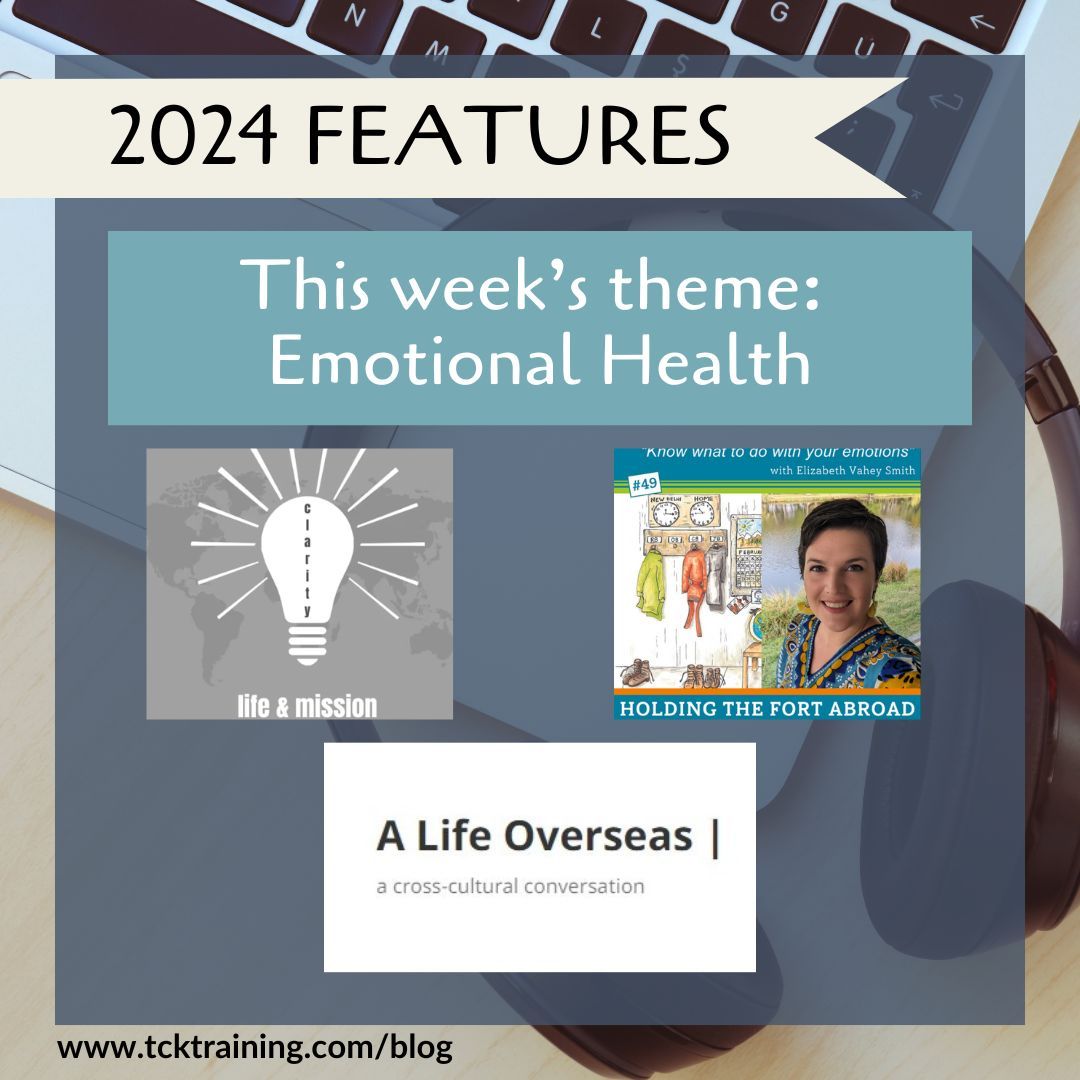
Our work and research (and staff!) were featured on a wide variety of blogs and podcasts throughout 2024! This is the second of a four-part series in which we will highlight features from throughout the year, organized by theme.
This week we're focusing on Emotional Health - something that is always a key theme for us here at TCK Training, so it's not a surprise this shows up in our external features as well! We are excited for your to dive into this great collection of content on the theme of emotional care for yourself and the TCKs you love.
In this episode Elizabeth Vahey Smith has a powerful conversation with author Rhoda Bangerter about how parents can model grief processing for their children. They discuss Elizabeth's book The Practice of Processing along with the Grief Tower model, giving tangible examples of parenting overseas and how parents can respond to their children in ways that promote empathy and awareness.
Click here to listen to the episode
Transition stress is real and normal, and it is not necessarily unhealthy, unless it goes on too long. Lauren Wells shares about how parents can use the Red Zone/Green Zone tool that we use in a lot of our materials to monitor their children’s stress in seasons of transition.
Click here to read the full article
Processing is so important in order to move forward, but many people struggle with where to begin. Elizabeth Vahey Smith introduces us to some of the foundational concepts of processing, including time investment, identifying emotions, and using helpful vocabulary in the processing for both kids and adults.
Click here to listen to the episode
In this article, Tanya looks at data on TCKs including that 4 out of every 5 adult TCKs feel impacted by unresolved grief from their childhood. She talks through how to open conversation with young TCKs about grief as well as how ATCKs can process past grief, and provides resources for all ages.
Click here to read the full article
Debriefing could involve debriefing a major event, but at TCK Training, we also believe in preventative-care debriefing. Here, Tanya draws on the expertise of our whole team to share features of good debriefing that lead to lasting impact to help families continue on in health.
Click here to read the full article


